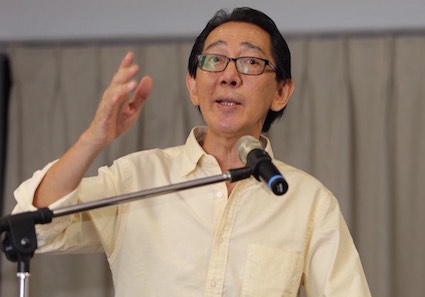SUARAM: Safeguard state land for the people, not developers

Penang state government’s income was derived from the proceeds of selling state land – the state government had sold or transacted at least RM37 billion worth of state land, land rights and assets since 2008.
KUA KIA SOONG
The Ijok land controversy highlights an important national issue that affects thousands of rural and urban Malaysians and, thus, it is one on which voters need to demand a clear stand by the two coalitions in GE14.
The issue at the heart of this controversy is the need to safeguard state land for public housing, sustainable farming and other public purposes and not sell it off – often for a song – to private developers.
In Penang, the state has sold land reclamation rights to private developers to pay for mega projects which have adverse social and irreversible environmental costs affecting all its citizens. The 2016 auditor-general’s report revealed that the lion’s share of the Penang state government’s income was derived from the proceeds of selling state land – the state government had sold or transacted at least RM37 billion worth of state land, land rights and assets since 2008.
It is very clear that the Harapan-run states of Penang and Selangor are not much different from the other states run by BN especially in Johor – both coalitions appear to be in the pockets of powerful developers, with serious consequences for the ordinary rakyat whom our political representatives are meant to be serving. Despite promises to the contrary, the chronic shortage of affordable housing, food security and land security for farmers remains unresolved from one general election to another.
What the Ijok land controversy reveals
According to the former Selangor MB Khalid Ibrahim, Ijok was part of a plan involving 1,141ha in 1973 to provide opportunities for the people to own land. The forest reserve was then approved to become an agricultural zone. Each recipient was allocated 1.2ha of land while the Selangor Agricultural Development Corporation was to manage the huge tract of land in a similar vein to Felda.
Years later, some developers bought the land from these settlers, promising compensation in the form of money and houses as their land would be used for housing projects, not agriculture. In 1998, the settlers agreed to allow several companies including Mujur Zaman and LBCN Development to develop the land in Ijok after the companies agreed to pay the settlers compensation. However, a decade later the settlers were still waiting for their compensation and houses.
When Pakatan Rakyat took over Selangor after the 2008 general election, Khalid’s administration seized the land by utilising the National Land Code after both developers had failed to meet certain conditions that included failing to pay the land premium, failing to change the land’s status from agricultural land to residential land, and failing to pay the premium to change the land status.
According to Khalid, the state paid more than RM160 million in compensation to all stakeholders including banks, companies, and settlers in 2009. Khalid claims that when he took over as MB in 2008, there were at least 20 such abandoned projects. Khalid’s justification for the state takeover of the land is perhaps most telling:
“But I saw that they only prioritised profit. As such, it was better for the government to take over the land (and project) and if we make a profit, it can be returned to the people… I thought that if I could solve the Ijok issue in such a manner, it can then be adopted by the Selangor Planning Unit and local governments, among others, for other similar cases.”
Both developers then sued the Selangor government at the High Court to acquire their land but on Oct 22, 2013, Khalid won the case and it was pending at the Federal Court. However, after Khalid was deposed, the Azmin administration returned the land to the developers despite the High Court and Appeal Court’s decision which had agreed with the Khalid administration.
The controversial settlement reached between the Selangor state government and housing developers Mujur Zaman and LBCN Development appears to be an apparent bailout of the developers by the state government. Why?
The Azmin administration claims it is a win-win situation. But is the RM180,000 compensation per settler fair considering the property’s value is far higher? Do the developers need to be compensated so handsomely?
Khalid maintains that: “If we are responsible and transparent, we cannot hold negotiations. A just state government will only allow business opportunities through open tender… Through an open tender, we can reduce abuse of power and corruption. (That is why) we brought the case to the Federal Court to ensure that there were no negotiations, corruption and abuse.”
Was the Azmin administration not confident of winning the case against the developers at the Federal Court? If so, why? This must be explained to the people.
KUA KIA SOONG is Suara Rakyat Malaysia (Suaram) adviser.

